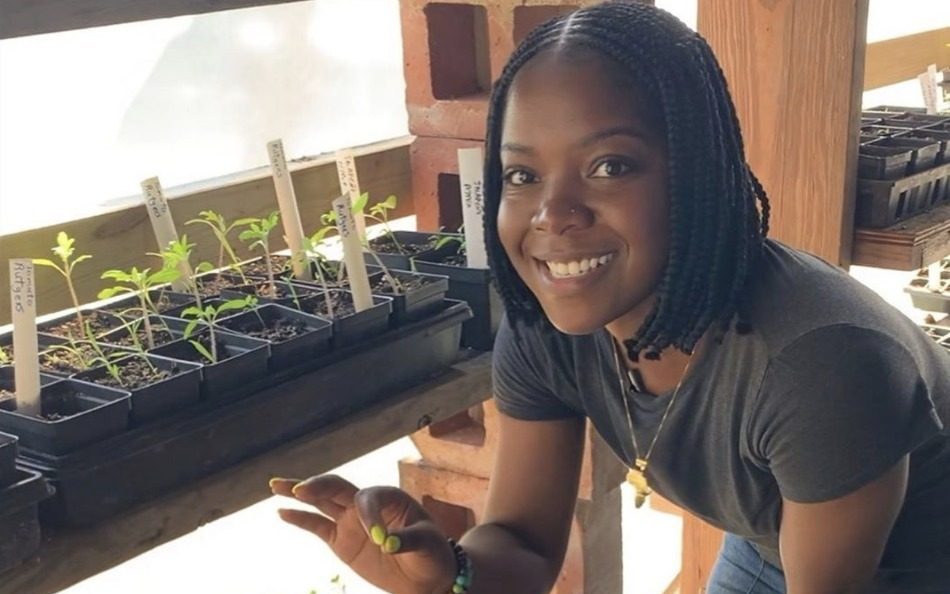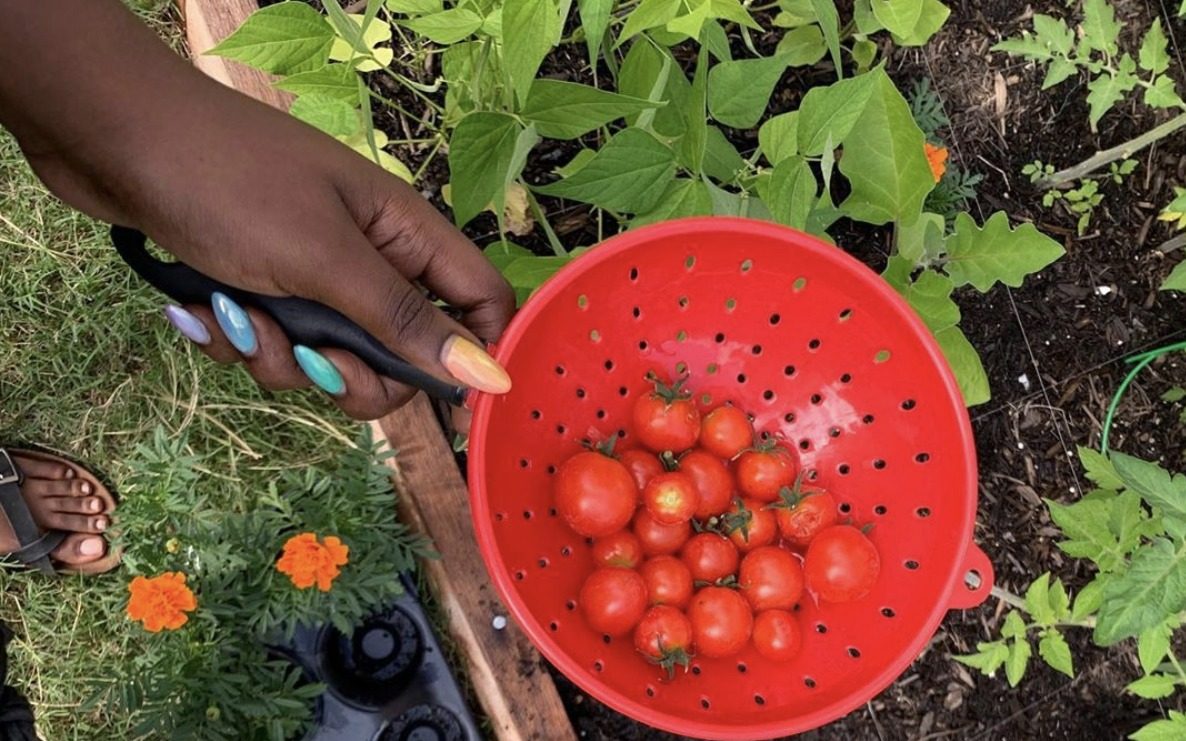I recently connected with Isoke of Gardens for life an organic vegetable garden installation service that aims to create equitable and sustainable food networks that serve residents living in food deserts within Atlanta communities. She’s doing some exciting work and happy to share her story and more on her background with the Refolo community!

Q: Isoke, tell us a little bit about your background. How did you get started with gardening?
A: I come from a family line of maternal gardeners. My great-grandmother had a robust garden in the back of her san francisco home and so did my grandmother. Every summer I would visit my grandmother and witness how the house became a home when she brought in vegetables from the garden to prepare dinner for her family. I was always fascinated by how she incorporated the garden into her daily life and made it a joyful activity rather than a tedious task. I came back to Atlanta with the notion that this was the norm. When my grandmother passed away in 2014, I wondered how I could continue her legacy, share the experience of growing your own food, and improve Atlanta’s food insecurity crisis. In 2016, I started Gardens For Life.

Q: What are some of the benefits of gardening? Growing your own food?
A: There are numerous benefits to gardening! For many of my clients it’s a form of therapy and a chance to get out into nature to de-stress. For others gardening is an opportunity to eat healthier. I think for most of my clients and for myself, having ownership over your food source creates a sense of pride. It makes me proud to be able to say that the tomatoes I used to make fresh salsa were grown by my own two hands! It makes my clients proud to be able to say that they know exactly what went into growing their cucumbers or eggplants because they did it themselves! The pure joy and excitement that gardening gives is the top benefit.
Q: Tell us more about food deserts in Atlanta? How can gardening help create more sustainable food systems?
A: Food security means that households consistently know (without a doubt) where their next meal will come from. Food insecurity – a lack of such peace of mind – is primarily linked to poverty rates, but household factors such as access to transportation and pre-existing health conditions also play major roles. What we know about Atlanta is that food insecurity is highest in the city’s urban core, but we are beginning to see that pockets of high food insecurity are present in more and more suburban counties. And with unforeseen economic factors like COVID-19, the issue is likely to get much worse unless something is done. The first issue is how we have been studying the problem of food insecurity.
So let’s look at Fulton County. Feeding America estimates 18.5 percent of households are food insecure in Fulton County, above the national estimate of 12.7 percent, but well below poor rural counties such as Hancock, Macon, and Terrell, all with rates near 25 percent. Even more interesting, the southernmost part of the county is where food insecurity rates are the highest versus in the northern region of the county. This would indicate that measuring food insecurity rates/patterns by county-to-county actually doesn’t help much with localizing the problem in order to solve it.
Putting a functioning garden on virtually every lawn will solve it. Gardens For Life is much more than a garden installation service, we aim to transform Atlanta’s food landscape into an equitable sustainable food network. We pride ourselves on not only building gardens, but building relationships. Each garden built within a food-insecure neighborhood is an opportunity for a relationship to be created, nourished, and grown between neighbors. Each garden built will help feed a struggling college student, a single parent, a retired couple, a growing family, a community.
Q: Where can members of the audience find you?
A: More on our company and the work that we do can be found at our website www.wegarden4life.com, schedule a FREE consultation by email at info@wegarden4life.com and follow us on Instagram @gardensforlife_
